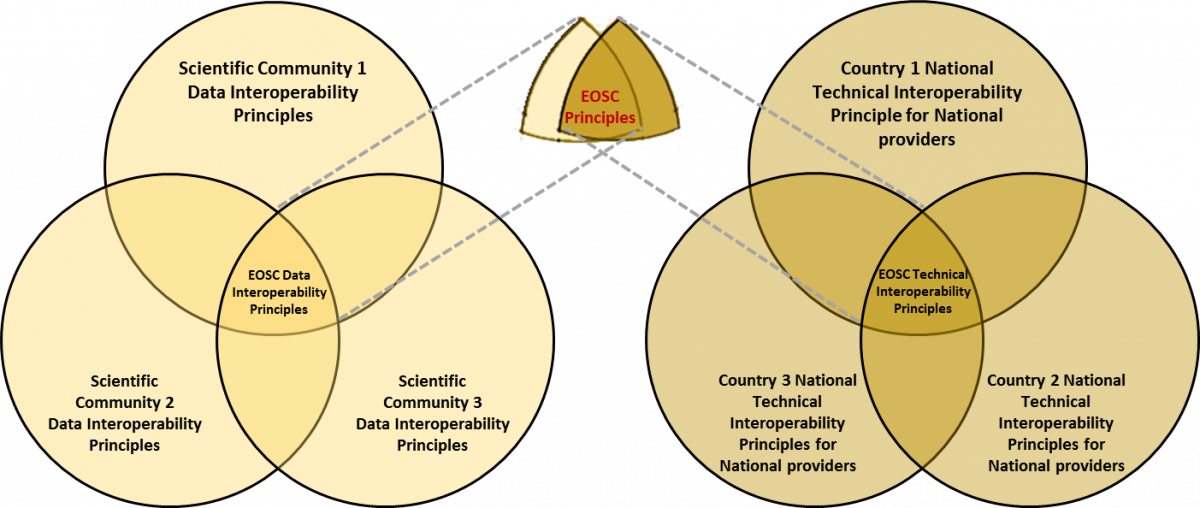The stakeholder forum is key to determining the requirements of the EOSC, its Principles of Engagement, to make proposals, recommendations and other guidance to the Strategic Layer, and to report on the effectiveness of EOSC to the Executive layer. The Governance Framework considers two aspects of the European Interoperability Framework (https://ec.europa.eu/isa2/eif_en) as a lens for these discussions.
The first part is the concept of overlapping domains which can be used to understand how different communities would need to interact. This can be applied to scientific and research domains: each scientific domain has its own best practices and standards, and the role of EOSC is to determine and coordinate the overlap between these different domains. It also applies to how different providers and intermediaries should engage with the EOSC Governance, in that it is the intersection of practices and standards between International, National and Local provision of resources which is important for EOSC. Finally, the agreements on engagement principles, standards and requirements should be the intersection of those of the different stakeholder roles: Consumer, Provider and Intermediary.

The second concept the application of Interoperability Contexts which can help frame the topics of discussion and agreement between the different stakeholders on how different infrastructures, scientific domains, providers etc. need to interoperate to develop and deliver the EOSC. The European Interoperability Framework defines four such contexts:
- Legal interoperability is about ensuring that organisations operating under different legal frameworks, policies and strategies are able to work together.
- Organisational interoperability refers to the way in which public administrations align their business processes, responsibilities and expectations to achieve commonly agreed and mutually beneficial goals.
- Semantic interoperability ensures that the precise format and meaning of exchanged data and information is preserved and understood throughout exchanges between parties.
- Technical interoperability covers the applications and infrastructures linking systems and services. Aspects of technical interoperability include interface specifications, interconnection services, data integration services, data presentation and exchange, and secure communication protocols.
